Bermuda grass, often called the “devil’s grass,” is a persistent invader in fescue lawns. It’s aggressive growth and deep root system make it a formidable foe, leaving many homeowners frustrated and overwhelmed.
Strategies such as solarization, cultivation, choking weeds, aeration & overseeding can suppress its growth.
Recognizing Bermuda grass’ ability to thrive and outcompete fescue is essential for eliminating it without damaging other plants. Here are some of the most effective methods to kill Bermuda grass in fescue.
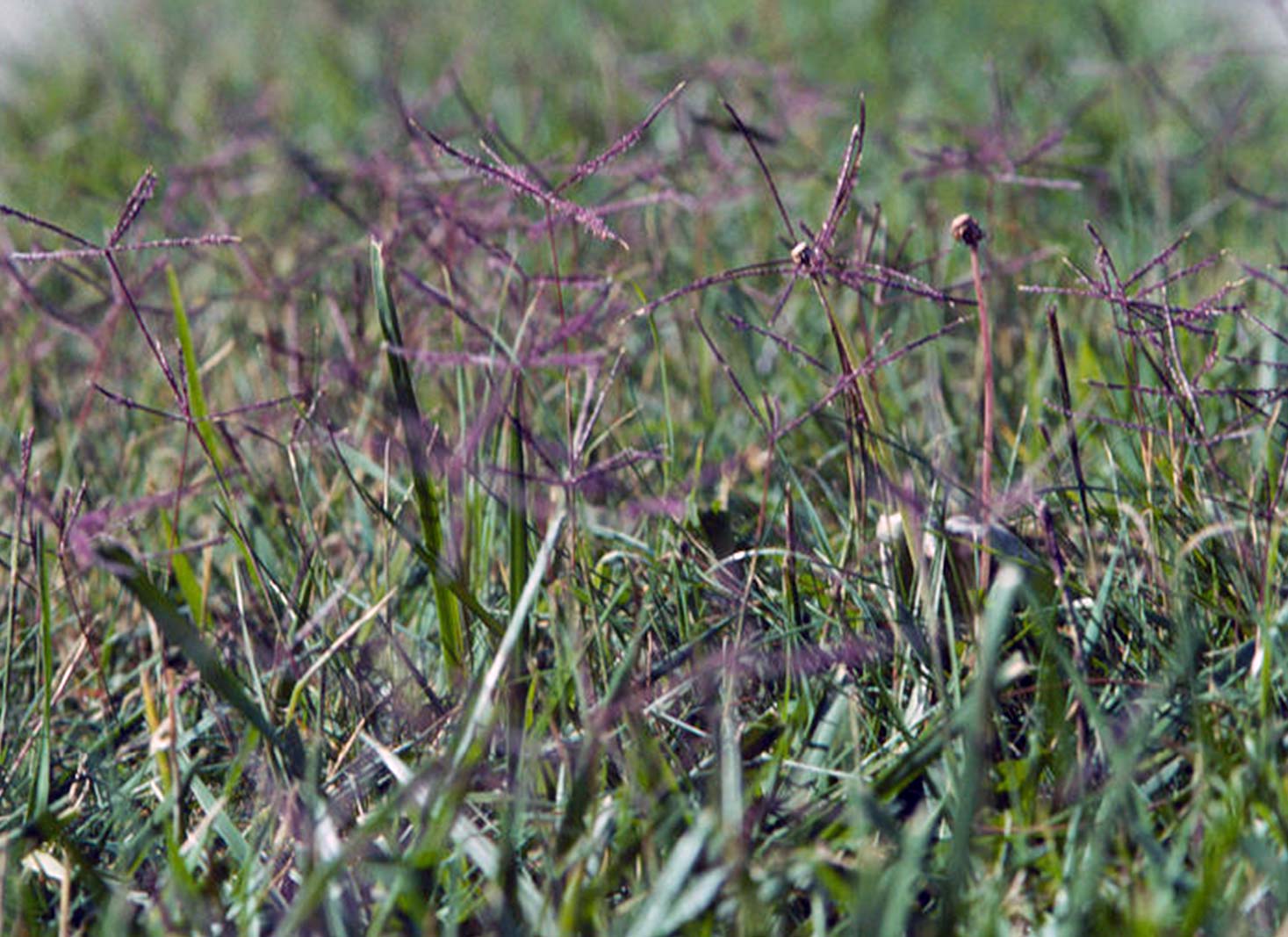
What we cover
ToggleUnderstanding the Bermuda Grass Invasion in Fescue Lawns
Bermuda grass is an exceptionally vigorous weed that can quickly overrun a fescue lawn if not managed properly. If left unattended, it can quickly take over your lawn.
Its ability to thrive in hot climates, propagate through seeds and rhizomes, and develop a deep root system enables it to survive drought conditions and outcompete fescue grass.
Eliminating Bermuda grass can be challenging, as it can coexist with other turfgrasses and ornamental plants, making it difficult to kill without adversely affecting the plants that should be maintained.
If left untreated, Bermuda grass will eventually overtake the lawn due to its more aggressive growth than fescue.
Strategies for Eliminating Bermuda Grass from Fescue Lawns
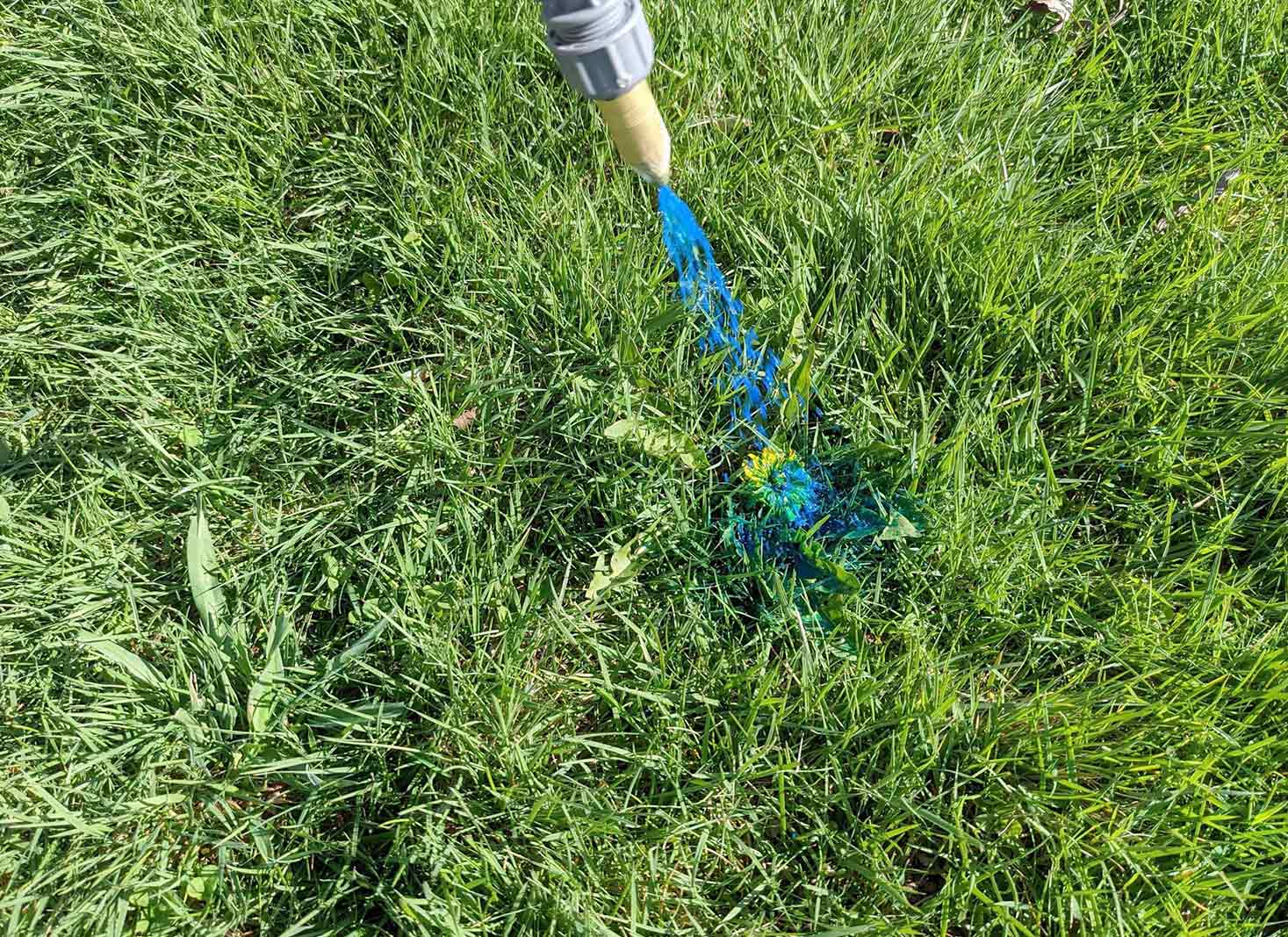
There are several natural methods to weaken and control Bermuda grass without introducing chemicals into the environment.
Solarization, cultivation, choking out weeds, aeration, overseeding, and mowing techniques can effectively suppress Bermuda grass, allowing you to reclaim your fescue lawn.
Mowing Practices to Suppress Bermuda Grass
When it comes to suppressing Bermuda grass, mowing plays a crucial role. By mowing common Bermuda grass at a height between 1 and 2 inches, you can help weaken its growth and control its spread.
This simple yet effective technique can make a huge difference in your battle against this invasive weed.
Solarization Technique for Bermuda Grass Control
Harness the power of the sun to defeat Bermuda grass with solarization! This technique utilizes the sun’s heat to eradicate Bermuda grass by boosting soil temperature and killing the weeds.
To implement solarization, remove the grass in the affected area and cover the soil with three layers of cardboard, then add about 5 inches of mulch on top. Allow this setup to sit for approximately half a year.
Solarization is most effective during summer when direct sunlight and soil heat are typically plentiful.
Monitor the soil temperature carefully to prevent excessive heat accumulation. Adjust the duration of solarization as required.
Manual Removal of Bermuda Grass
By digging around the edges of the patch, loosening the soil, and then carefully lifting and removing the Bermuda grass along with its roots, you can make a significant impact in eradicating this invasive weed.
A garden fork is an excellent tool for removing Bermuda grass, as it helps to loosen the soil and extract the roots more efficiently.
Remember that persistence is key in manual removal, as this process may need to be repeated several times to ensure complete eradication.
Smothering Bermuda Grass with Mulch or Landscape Fabric
Another effective method to eliminate Bermuda grass is by smothering it with mulch or landscape fabric. A sod cutter is used to remove the soil from a Bermuda grass sod or garden bed.
This is then covered with landscaping fabric for a continuous period of six months. Landscaping fabric has been proven to be an effective way of containing Bermuda grass root growth.
Studies have shown that significant results can be seen within two months.
For a more natural approach, try the cardboard sheet mulch technique. This method prevents the unwanted plant from receiving the sunlight necessary for photosynthesis, effectively killing Bermuda grass without the use of chemicals.
Selective herbicide for Bermuda grass

If natural methods aren’t yielding the desired results, you might consider using a post-emergent selective herbicide like Ornamec 170.
This powerful herbicide targets Bermuda grass and other grassy weeds without harming most flowers, ornamental trees, and shrubs. When mixed with water, results can be expected within 48 hours.
Ornamec 170 Bermuda Grass Killer
Ornamec 170 is a powerful post-emergent selective herbicide. It effectively controls many types of grassy weeds, including Bermuda grass.
Mixing Ornamec 170 with water and applying it directly to the targeted Bermuda grass ensures successful eradication without affecting other nearby grasses.
The effectiveness of Ornamec 170 has been observed within 24 hours of application, and complete termination of Bermuda grass can be achieved between 1 to 3 weeks.
This powerful herbicide can be a game-changer in your battle against Bermuda grass, helping you reclaim your beautiful fescue lawn.
Will vinegar kill Bermuda grass?
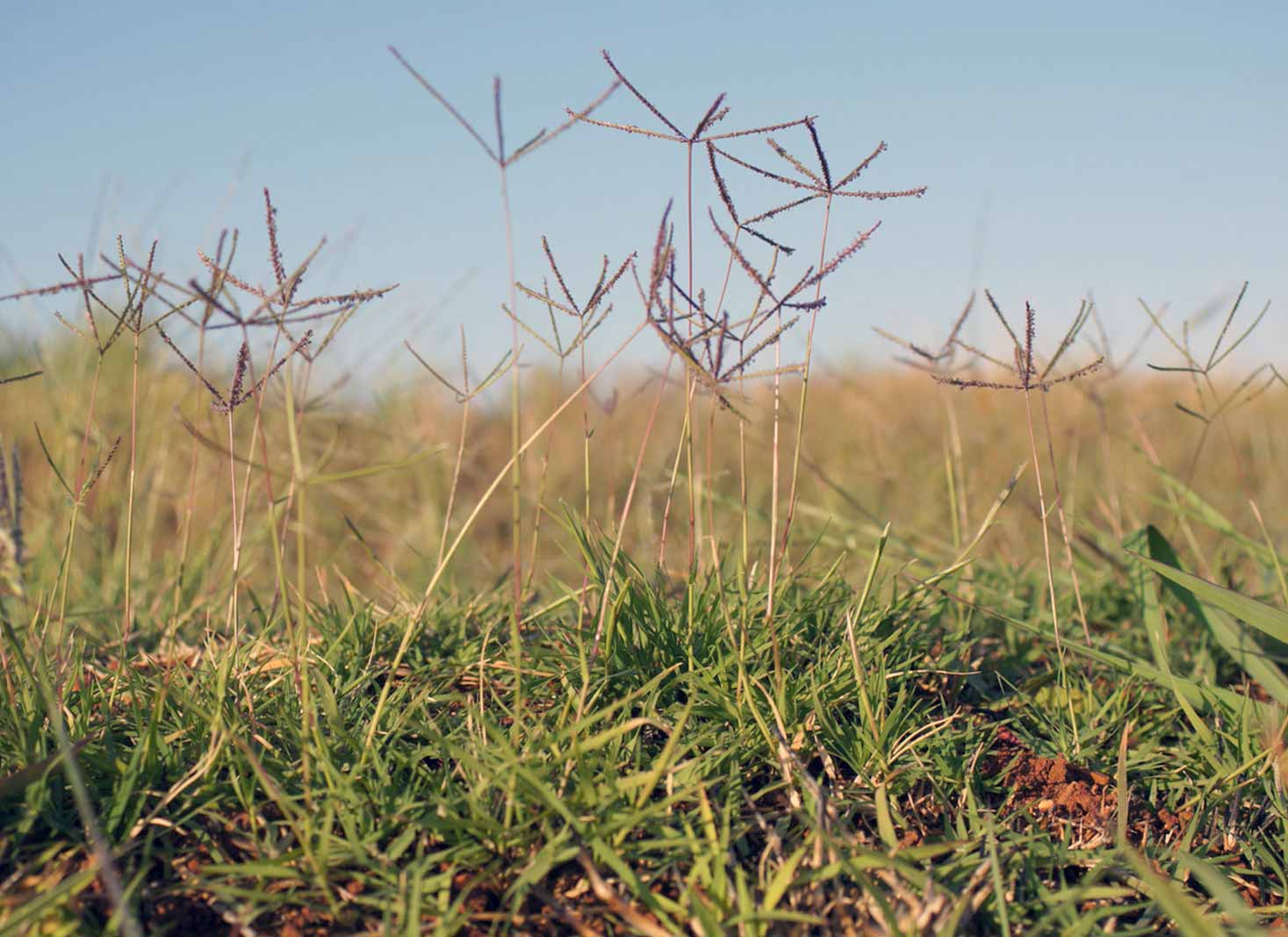
Vinegar is often praised as a natural herbicide for Bermuda grass. However, you should take extra caution when using it.
While vinegar can indeed be effective against Bermuda grass, it can also kill your lawn grass. It’s essential to apply vinegar carefully and be prepared for multiple applications over a few weeks to see the desired results.
However, if you’re looking for a more targeted approach, you can consider other methods.
Other Chemical Solutions for Bermuda Grass Eradication
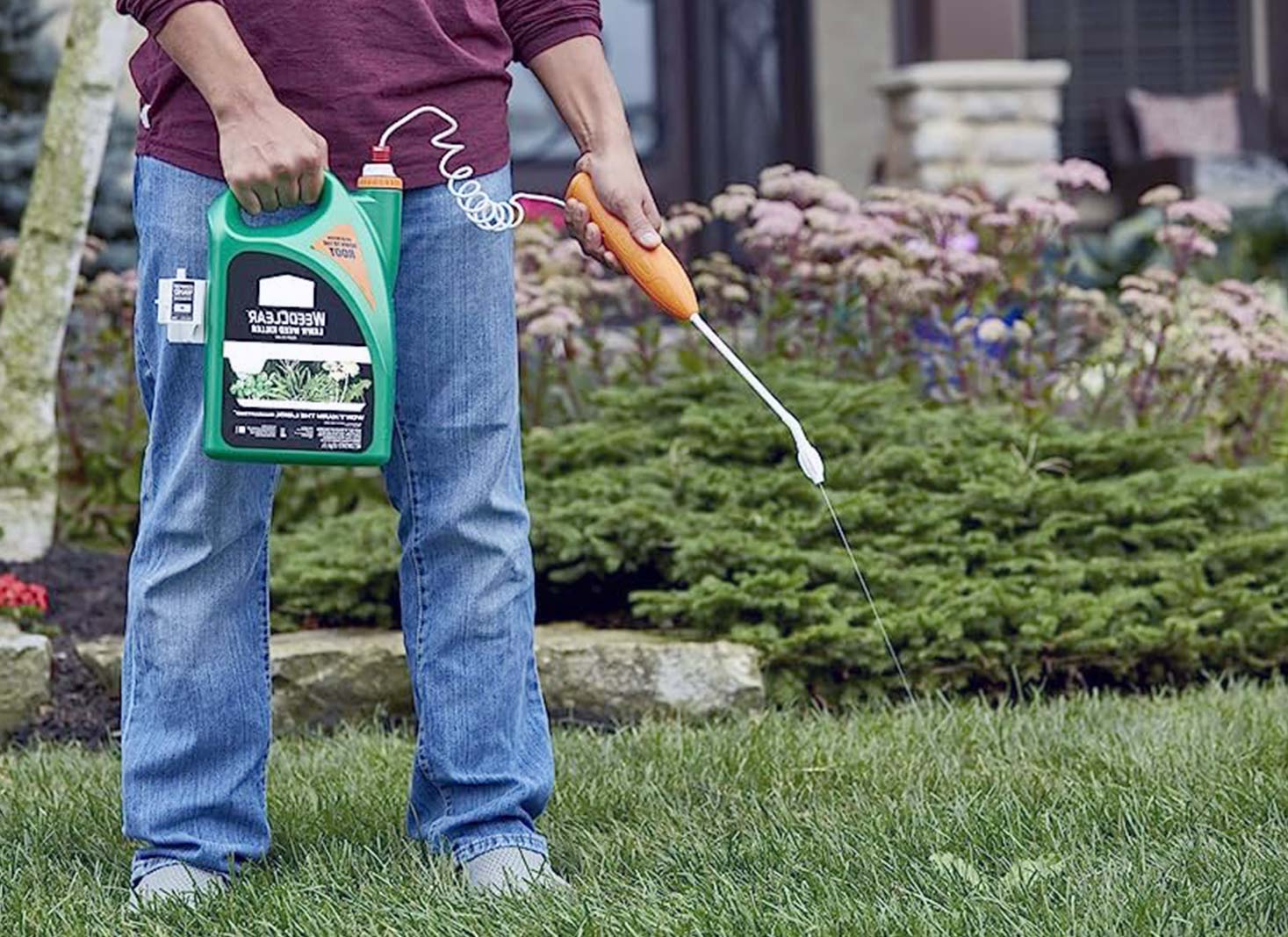
If you’re still struggling to eliminate Bermuda grass from your fescue lawn, consider using other chemical solutions such as Roundup and Fusilade II.
Both of these herbicides contain glyphosate, a powerful ingredient known to be effective in eliminating many grass weeds, including Bermuda grass.
Roundup works by inhibiting the plant’s top growth and affecting the root system.
On the other hand, Fusilade II is an effective herbicide for controlling perennial grassy weeds like Bermuda grass. It’s advised to apply Fusilade II once a month at a reduced rate.
Mow Height - Bermuda Grass Hates Low Light
Maintaining the right mow height is a simple yet effective way to suppress Bermuda grass growth.
By mowing your fescue lawn at a higher height (2-3 inches), you can reduce the amount of sunlight supplied to Bermuda grass, limiting its spread and growth.
This small change in your lawn care routine can make a world of difference in keeping Bermuda grass at bay.
When to Take Action Against Bermuda Grass
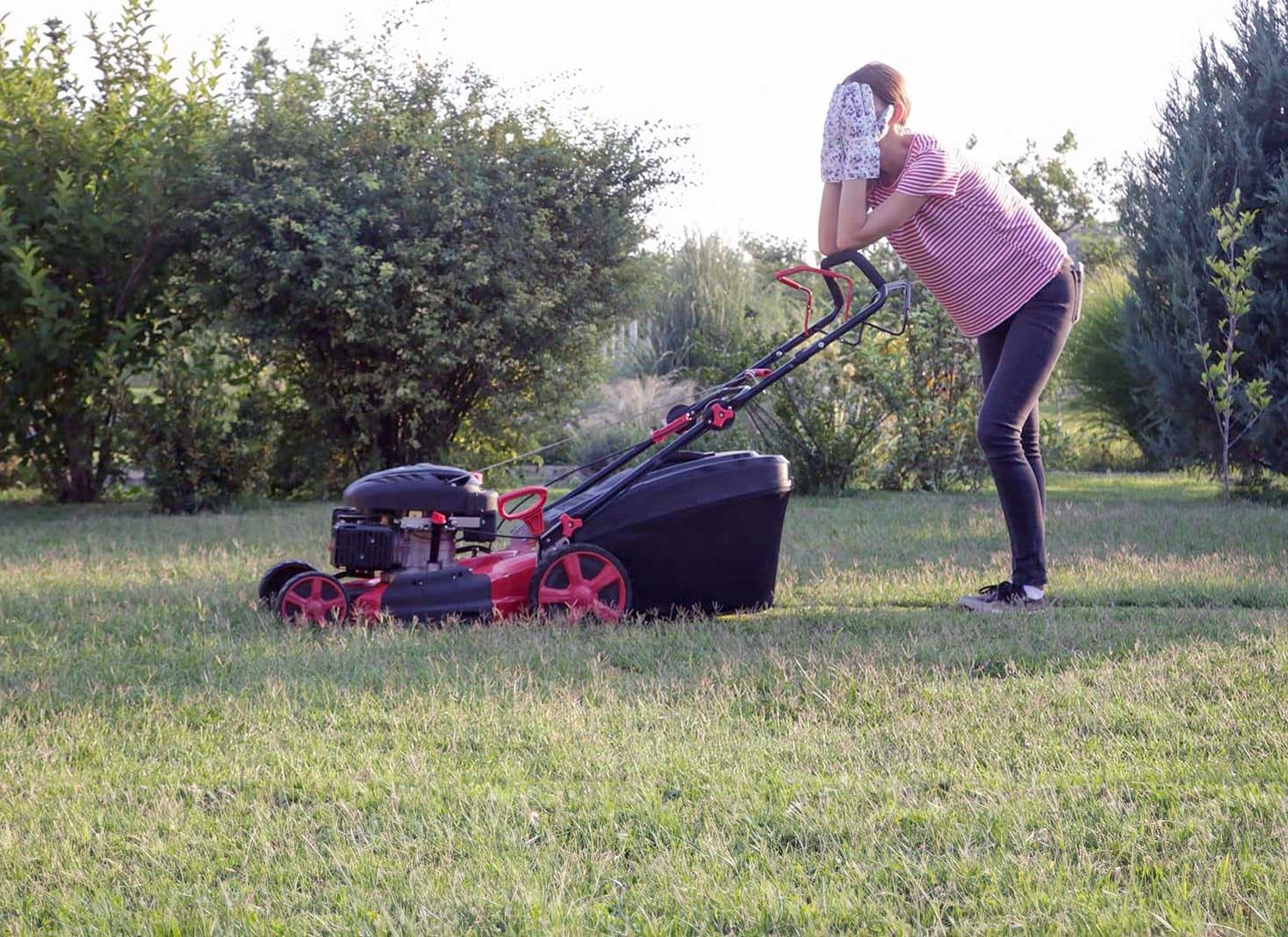
Late spring to early summer is the best time to start eradicating Bermuda grass in fescue lawns, as this is when the weed is most active and vulnerable.
However, remember that natural methods require patience and persistence, so don’t expect immediate results.
Consistency is key when tackling Bermuda grass, and starting early will give you the best chance of success.
Common Misconceptions About Killing Bermuda Grass
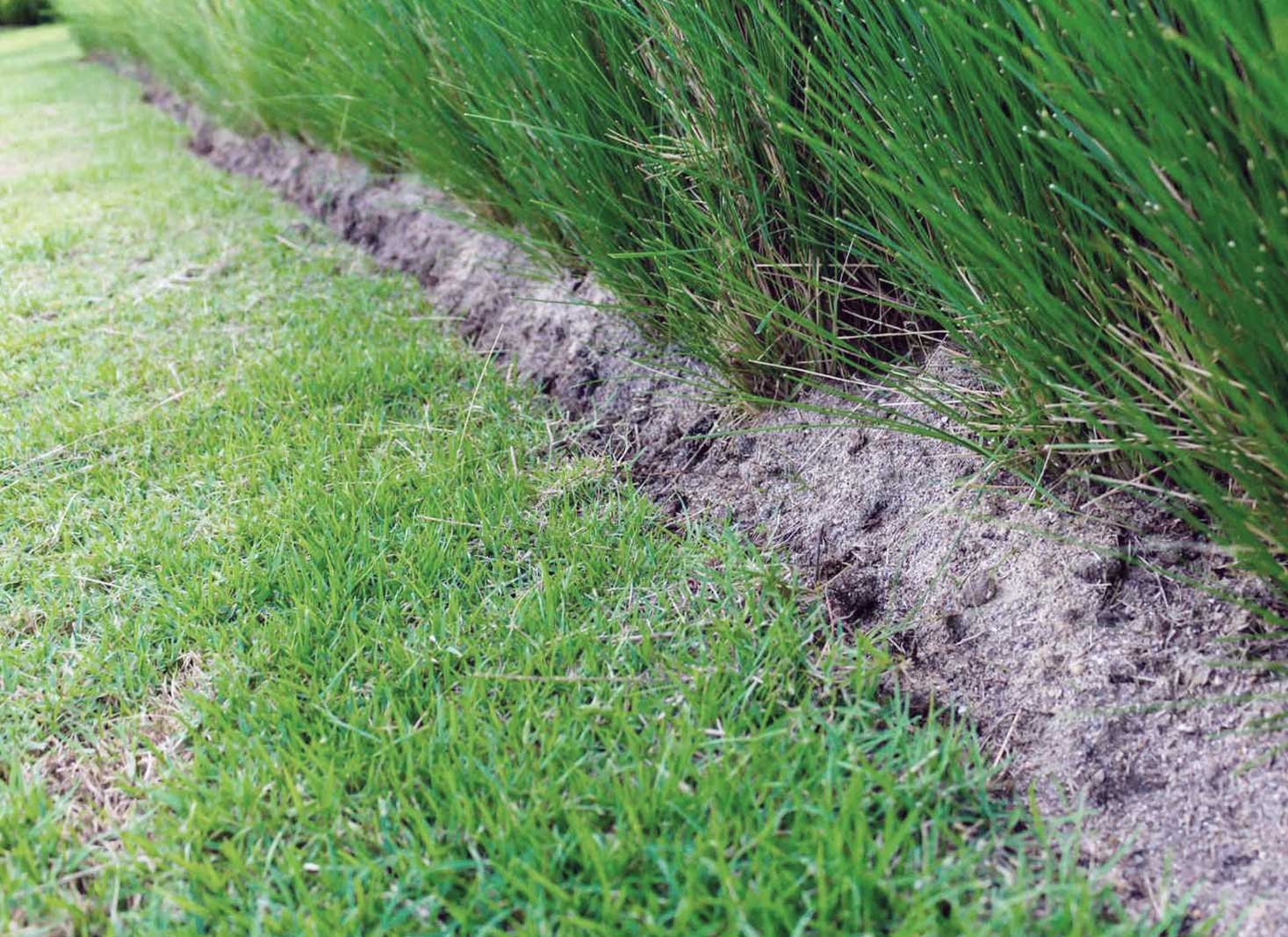
When it comes to killing Bermuda grass, there are a few misconceptions worth addressing. Many people believe that baking soda is an effective method for eliminating Bermuda grass, but this is not the case.
Additionally, while glyphosate (found in Roundup and Fusilade II) can help get rid of above-ground Bermuda grass runners, it’s not a one-time solution.
As with any weed control strategy, persistence and consistency are key to achieving lasting results.
FAQ's
The best way to kill Bermuda grass without harming other grasses is to apply a post-emergent selective herbicide, such as Ornamec, that specifically targets the weeds.
This will ensure that other grasses are unharmed while the weeds are effectively eradicated.
It is possible for fescue to choke out Bermuda grass over time. With the right care and maintenance, fescue can become thicker and healthier than Bermuda grass, thus depleting its resources and eventually eliminating it from the lawn.
To get rid of Bermuda grass and replace it with fescue, apply a Fusilade II herbicide to kill the existing weeds.
Then, mow your lawn frequently to promote fescue growth and choke out any remaining Bermuda grass, before finally seeding in the fall for a lush fescue lawn.
Mowing. Mowing your Bermuda grass at the lowest setting of the lawnmower on a regular basis will eventually cause it to die.
This method does require consistent effort but can be an effective way to kill the grass without using herbicides.
